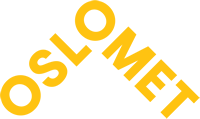About the Project
Do you want to contribute to the development of fully autonomous ocean observing systems composed of swarms of miniature underwater robots, unmanned surface vessels, and drones?
The Department of Mechanical, Electronics and Chemical Engineering at OsloMet is hiring one PhD fellow (100%). The appointment is for a term of 3 years.
The PhD fellow will contribute to the OASYS project http://www.oasys-project.eu/
(Ocean-Air synoptic operations using coordinated autonomous robotic SYStems and micro underwater gliders) research project, funded by EU Horizon 2020 ERA-NET cofund MarTERA. OASYS is a multidisciplinary research project in collaboration with NTNU, Norwegian Polar Institute, and TriOS GmbH.
One of the barriers towards a better understanding and sustainable development of marine related economic activity is the high cost associated with ocean observing systems. Autonomous robotic systems are steadily modernizing the way we obtain data and interact with the ocean. However, most of existing autonomous systems still require the involvement of manned missions in the deployment/recovery phases which represents a substantial share of the total operational costs. The OASYS project will develop an innovative fully automated Ocean-Air coordinated robotic operation with the potential to drastically reduce the cost of ocean observing systems. The project proposes the development of a swarm of low cost Micro Underwater Gliders (MUGs) that can operate autonomously with the support of Unmanned Aerial Vehicles (UAVs) and Unmanned Surface Vessels (USVs) for deployment, recovery, battery charging, and communication relay. The system reduces human intervention to a minimum, revolutionizing the affordability of a broad range of surveillance and data collection operations. The technologies developed through the project will enable the creation of future products, solutions, and scientific research, related to the commercialization of the autonomous observing systems and the generated data. The proposed observing systems will be demonstrated during sea trials in Trondheim fjord and in a tidewater glacier in Svalbard, Norway.
OsloMets role in the project is the development of a fleet of Micro Underwater Gliders (MUG) that can be deployed and recovered using UAVs and USVs. In particular, the candidate will perform research and development in the areas of
-Mechanical design and optimization of variable buoyancy systems
-Electro-mechanical design and miniaturization
-Energy storage and inductive battery charging strategies
-Autonomous deployment/recovery mechanisms using UAVs/USVs
-Navigation and motion control strategies
-The candidate will work mainly in the area of Marine Robotics, Autonomous Systems, Bio-inspired robotics.
The candidate will be member of the Automation, Robotics, and Intelligent Systems (ARIS) research group and work together with other researchers, PhD students, and post doctoral researchers from OsloMet, NTNU, and the Norwegian Polar Institute.
Qualifications:
-Masters degree in Mechanical Engineering, Electromechanical Engineering, Mechatronics, or relevant field with 120 ECTS or equivalent with an average grade of A or B within a scale of A-E passing of grades and Bachelor’s degree in the same fields with an average grade of C and higher
-Knowledge/ experience in one or more of the following topics: robotics, electro-mechanical design, control systems
-High motivation for the research work described above
-Fluency in English, both spoken and written
Desired skills:
-Experience in development of mechanical / electromechanical prototypes, 3D modelling, and involvement in DIY projects
-Experience with one or more of the following: electric motors, sensor data acquisition, servo drives, micro-controllers, hydraulics, hydraulic seals, pressure vessel design
-Basic programming skills in Python, MATLAB, or similar.
-Strong analytical skills.
-Ability to work independently, take initiative, plan and direct own work, and be goal-oriented.
-Excellent communication skills and ability to collaborate in interdisciplinary teams.
-Experience in publishing academic Works.
More information and application: https://hioa.mynetworkglobal.com/en/what:job/jobID:217527/

 Continue with Facebook
Continue with Facebook

